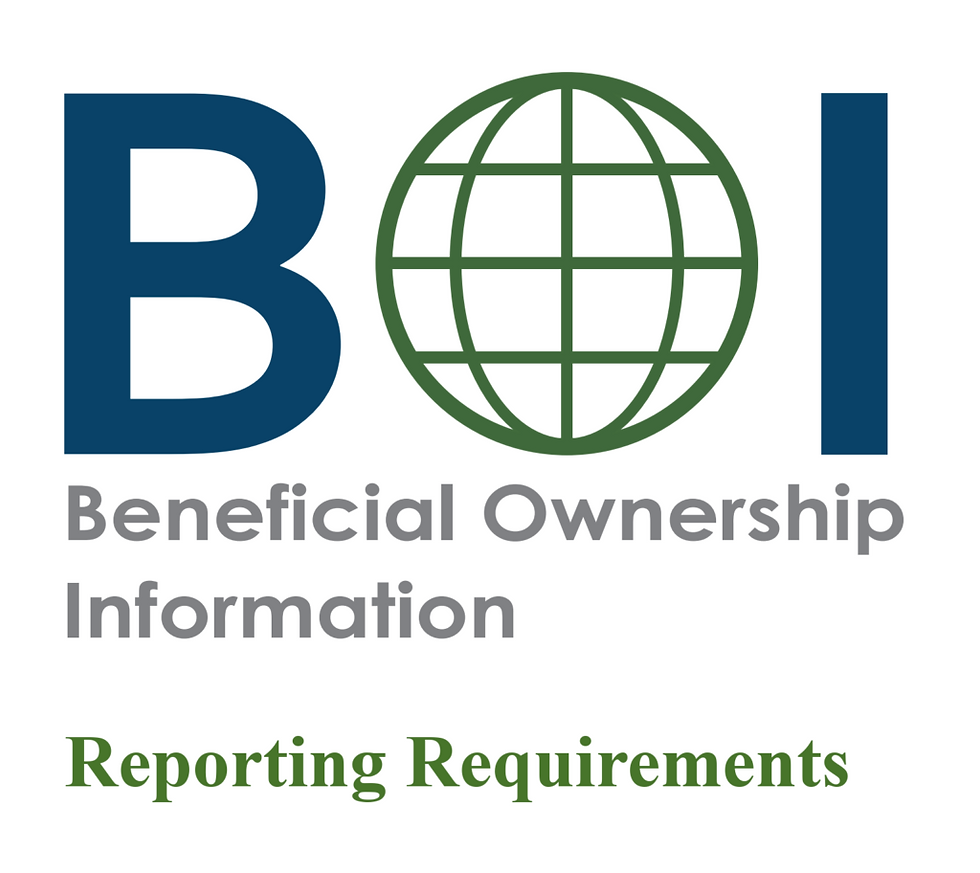What You Need to Know About Beneficial Ownership Information (BOI) Reporting
- We Do Taxes

- Oct 10, 2024
- 2 min read

Introduction:
As a business owner, staying compliant with new regulations is crucial to avoid fines and penalties. One of the newest requirements is the Beneficial Ownership Information (BOI) reporting, which impacts certain business entities. Whether you’ve heard of BOI or not, it’s important to understand how it affects your business and what steps you need to take. In this blog, I’ll break down what BOI is, why it matters, and how to ensure you’re compliant with the latest regulations.
What Is Beneficial Ownership Information (BOI)?
The BOI reporting requirement was introduced to combat money laundering, tax evasion, and other illegal financial activities. Under these rules, businesses are required to disclose key information about the individuals who directly or indirectly own or control the company. This information helps government agencies keep track of company ownership structures to prevent illegal activities.
Who Is Required to File BOI?
If your business falls into one of the following categories, you may be required to submit BOI reports:
Corporations, LLCs, or similar entities that are registered in the U.S.
Companies with multiple owners or complex ownership structures.
Businesses with foreign ownership or control may have additional reporting requirements.
Small businesses and new companies often fall under these regulations, so it's essential to check if you’re affected.
What Information Needs to Be Reported?
BOI reporting requires specific details about the business owners, including:
Full legal name
Date of birth
Residential or business address
Identification numbers (such as a driver’s license or passport)
Companies must ensure they gather and submit this information accurately and on time to avoid penalties.
How to File BOI Reports:
The BOI report must be filed through the Financial Crimes Enforcement Network (FinCEN). Business owners should follow these steps to ensure compliance:
Determine if your business is required to report.
Gather the required information about beneficial owners.
Submit your report to FinCEN using the designated form and process.
If you're unsure whether your business is subject to BOI reporting, consulting with a tax or legal expert is highly recommended.
Penalties for Non-Compliance:
Failure to submit accurate BOI reports on time can result in hefty fines and penalties. The government takes compliance seriously, and businesses that ignore these requirements risk legal and financial consequences.
How Can WE Help?
As Tax professionals with expertise in tax and regulatory compliance, We can guide you through the BOI reporting process to ensure your business stays compliant. Don’t let these new requirements catch you off guard—reach out to us today for assistance!
Wanna DIY:
Check out this step by step video to file your own BOI report here!





Comments